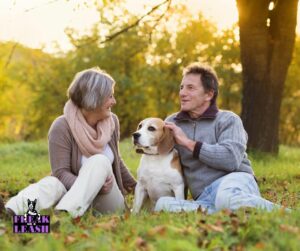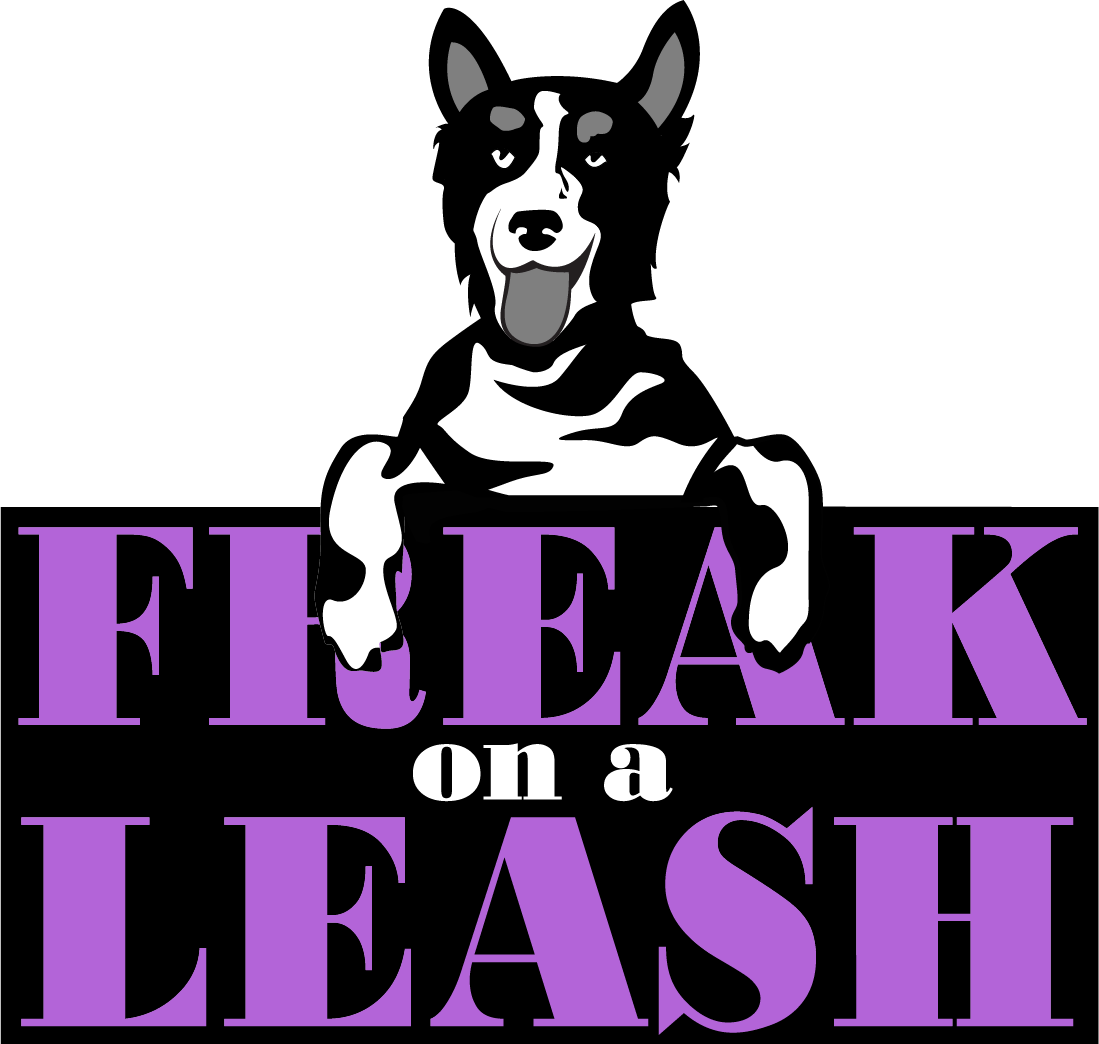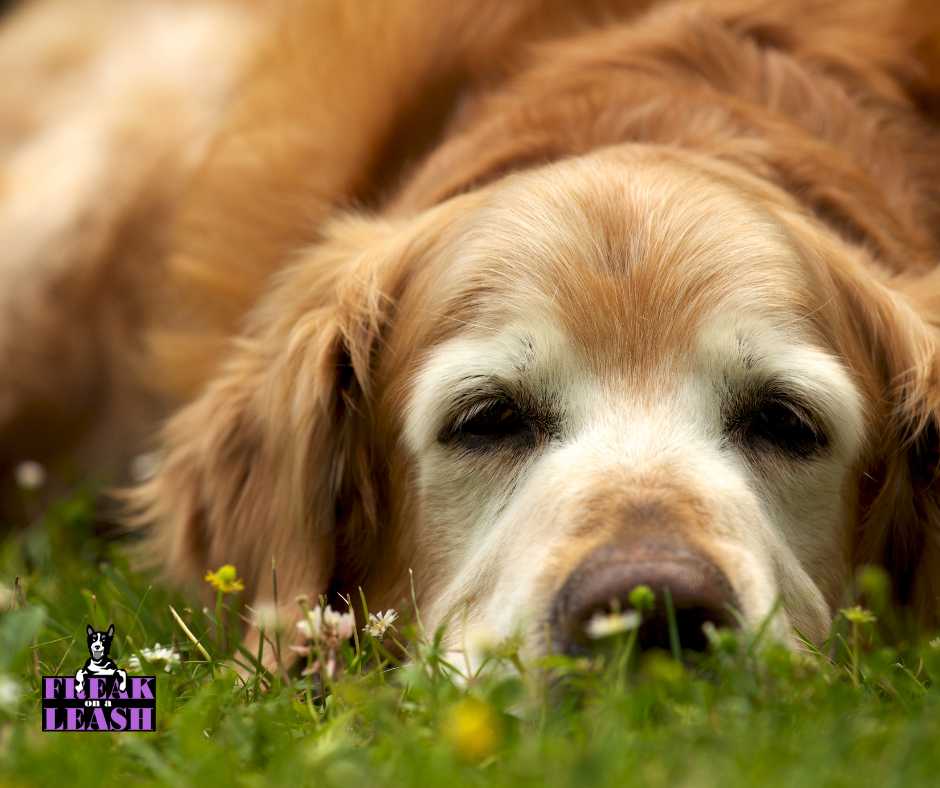Key Highlights
- Training an older dog is possible. Senior dogs can learn new tricks regardless of their age.
- Older dogs require patience and a positive reinforcement approach in training sessions.
- Mental stimulation and regular training can be important for the well-being of senior dogs.
- Older dogs have the benefit of experience and maturity, which makes some aspects of training easier.
- The key to successfully training your senior dog is understanding their health and capabilities.
 Introduction
Introduction
Dog training is often associated with puppies and young dogs, but it can be just as important for older dogs. Many people are adopting older dogs from shelters, and may experience challenges in training these dogs due to their age. However, it is a common misconception that older dogs cannot learn new tricks. In fact, training sessions can be beneficial for senior dogs, providing mental stimulation and promoting good behavior.
When adopting an older dog, it is important to understand their history, if possible. Sometimes rescue dogs have spent a portion of their lives fending for themselves or living substandard conditions. As a result, they may not have learned the basic skills that pet owners may expect. Additionally, older dogs may have developed bad habits that can be difficult to break. However, with patience and the right training techniques, it is possible to change undesirable behavior.
In this blog, we will debunk common myths around training senior dogs and unveil the facts. We will explore the cognitive function and adaptability of older dogs, the benefits of experience and maturity, and the importance of ongoing mental stimulation and physical exercise. We will also provide practical tips for training your senior dog, including understanding their health and capabilities, incorporating positive reinforcement techniques, and adjusting your training methods to suit their abilities.
Debunking Common Myths and Unveiling the Facts About Training Senior Dogs
Training senior dogs is often associated with the misconception that it is difficult for older dogs to learn new things. However, this is far from the truth. Senior dogs have the cognitive function and adaptability to learn new things. They can continue their training and benefit from ongoing mental stimulation and physical exercise. Training sessions can not only improve an older dog’s behavior but also provide a positive outlet for their energy and promote a healthy bond between pet owners and their senior canine companions.
Myth 1: Senior Dogs Can’t Learn New Tricks
One common myth about senior dogs is that they can’t learn new tricks. This myth stems from the belief that older dogs are set in their ways and less capable of learning new things. However, this couldn’t be further from the truth. Just like puppies and younger dogs, older dogs have the ability to learn and adapt. In fact, training sessions can be highly beneficial for senior dogs, providing mental stimulation and promoting good behavior. It’s never too late to teach an old dog new tricks, and training sessions can bring joy and fulfillment to both the pet owner and their senior canine in their golden years.
Fact 1: Cognitive Function and Adaptability in Older Dogs
Contrary to popular belief, older dogs typically have intact cognitive function and adaptability. They are capable of learning new things and adjusting to new situations. While it may take slightly longer for an older dog to pick up a new skill compared to a younger dog, their cognitive abilities are still intact, allowing them to learn and retain information. With patience, positive reinforcement, and consistent training sessions, older dogs can successfully learn new tricks and behaviors. It’s important to remember that older dogs are not limited by their age, and training often provides mental stimulation and enrichment that is essential for their overall well-being.
Myth 2: Training an Older Dog Is More Difficult Than a Younger One
Another common myth about training senior dogs is that it is more difficult than training younger dogs. While it is true that older dogs may have physical limitations, such as stiff joints or joint pain, this does not necessarily make training more challenging. In fact, older dogs can often be easier to train than their younger counterparts. Older dogs have a calmer demeanor, are less excitable, and have a longer attention span, making them more focused during training sessions. With a well-designed training program that takes physical limitations into account, older dogs can thrive and successfully learn new skills or change old habits.
Fact 2: The Benefits of Experience and Maturity
Additional benefits of training a senior dog include experience and maturity. Older dogs have had more time to develop and understand human cues and commands. They have likely already learned desired behaviors and may have a better understanding of what is expected of them. Additionally, older dogs tend to have more patience, which can make the training process smoother and more enjoyable. Their maturity allows them to focus on the task at hand and respond well to positive reinforcement techniques. By utilizing this experience and maturity, pet owners can achieve desired behavior and strengthen their bond with their senior dog.
Myth 3: Senior Dogs Don’t Need Training
Another myth surrounding senior dogs is that they don’t need training. Some pet owners believe that because their dog is older, they no longer require training sessions. However, continuing training is often quite for senior dogs. Learning new things not only promotes good behavior but also provides mental stimulation that is vital for their overall well-being. Training sessions keep minds active and engaged and prevent cognitive decline. Additionally, training provides a context for pet owners to continue to reinforce desired behaviors, address any behavioral changes that may occur with age, and improve the bond with their senior dog. Sessions can be adapted to suit the needs and abilities of older dogs, with a focus on ensuring they continue to lead fulfilling and enriched lives.
 Fact 3: Importance of Ongoing Mental Stimulation and Physical Exercise
Fact 3: Importance of Ongoing Mental Stimulation and Physical Exercise
Ongoing mental stimulation and physical exercise are vital for the health and well-being of older dogs. Regular training sessions provide mental stimulation by engaging their minds and preventing cognitive decline. These sessions can include learning new tricks, practicing commands, or participating in scent work and puzzle toys. Physical exercise, tailored to the abilities of the older dog, helps maintain their physical health and prevent obesity. It is important to provide a balance of mental and physical stimulation to keep the dog active and happy. By incorporating regular training sessions into their routine, pet owners can ensure that their senior dog remains mentally sharp and physically fit throughout their golden years.
Practical Tips for Training Your Senior Dog
When it comes to training your senior dog, there are several practical tips that can help ensure success. First and foremost, always use positive reinforcement methods to encourage desired behavior. This can include verbal praise, treats, or toys. Additionally, incorporating scent work into your training sessions will provide mental stimulation for your older dog. This can be as simple as teaching your dog to recognize different scents and follow scent trails. Using hand signals can also be beneficial, especially if your dog is experiencing hearing loss. Finally, explore different types of training techniques to find what works best for your senior dog, whether it’s clicker training, shaping, or targeting.
Tip 1: Understand Your Senior Dog’s Health and Capabilities
When training your senior dog, it is important to consider their health and capabilities. Here are some tips to keep in mind:
- Consult with your veterinarian to ensure your dog is healthy enough for training sessions.
- Take into account any physical limitations your dog may have, such as stiffness or joint pain.
- Adjust training exercises to suit your dog’s capabilities, avoiding activities that may cause discomfort or strain.
- Incorporate regular exercise routines that are appropriate for your dog’s age and fitness level.
Tip 2: Incorporate Positive Reinforcement
Positive reinforcement is a highly effective training technique for senior dogs. Here’s how to incorporate it into your training sessions:
- Reward your dog with treats, verbal praise, or toys immediately after they exhibit the desired behavior.
- Use a reward system to reinforce new behaviors. For example, give your dog a treat every time they successfully perform a new trick.
- Be consistent with your rewards and provide immediate feedback to your dog.
- Avoid punishment or negative reinforcement, as this can create fear and anxiety in your senior dog.
Tip 3: Adjust Your Training Methods to Suit Their Pace
Senior dogs may have a slower pace and lower energy level compared to younger dogs. Here’s how to adapt your training methods to suit their needs:
- Keep training sessions short and focused to accommodate your dog’s attention span.
- Be patient and allow your dog ample time to process and respond to commands.
- Adjust the intensity and duration of exercises to match your dog’s energy level.
- Break down complex tasks into smaller, more manageable steps to prevent overwhelm.
- Remember that consistency and repetition are key to successful training with senior dogs.
 Tip 4: Ensure Consistency and Patience Throughout the Training Process
Tip 4: Ensure Consistency and Patience Throughout the Training Process
Consistency and patience are essential when training senior dogs. Here’s how to maintain these qualities throughout the training process:
- Establish a predictable schedule for training sessions and stick to it.
- Use consistent commands and cues to avoid confusion.
- Be patient and allow your dog time to process and respond to your cues.
- Break down training tasks into smaller, more manageable steps to prevent frustration.
- Celebrate small victories and progress, even if the process is slower for your senior dog to learn new tricks.
Tip 5: Recognize and Address Behavioral Changes
As your senior dog ages, they may experience behavioral changes. Here’s how to recognize and address these changes during training:
- Pay attention to any changes in your dog’s behavior, such as increased anxiety, aggression, or confusion.
- Consult with your veterinarian to rule out any underlying medical conditions that may contribute to these changes.
- Adjust your training approach to accommodate any behavioral changes, using positive reinforcement and providing a calm and supportive environment. Seek help from a professional if needed.
- Be patient and understanding with your senior dog. Seek professional help to address any significant behavioral issues.
Conclusion
In conclusion, training your senior dog is not only possible but beneficial for their well-being. Debunking common myths reveals that older dogs can learn new tricks, benefit from ongoing mental stimulation, and require consistent training. Understanding your senior dog’s health, incorporating positive reinforcement, and adjusting training methods are key tips for successful training. By recognizing behavioral changes and being patient throughout the process, you can enhance your senior dog’s cognitive function and adaptability. With tailored approaches and dedication, training your senior dog can be a rewarding experience for both of you.
Frequently Asked Questions
Can an older dog be trained effectively?
Yes, older dogs can be trained effectively. With the right training techniques, such as positive reinforcement and patience, older dogs can learn new skills and behaviors.
How do I adapt training for a dog that’s losing its hearing or sight?
For dogs with hearing or sight loss, it is important to adapt training methods. Use hand signals instead of verbal cues and conduct training sessions in a quiet and well-lit area.
What are some good exercises for mental stimulation?
Activities such as scent work, food puzzles, and obedience training can provide mental stimulation for older dogs. These exercises engage their minds and help prevent cognitive decline.
Is it too late to socialize my senior dog?
It’s never too late to socialize your senior dog. Introduce them to new experiences gradually and in a positive manner, creating positive associations with new people and environments.
How can I help my senior dog with separation anxiety?
To help a senior dog with separation anxiety, provide a calm environment, establish a consistent routine, and gradually increase the time spent apart very slowly to build your dog’s confidence and comfort with being alone. A thorough medical check-up is an important step to rule out any pain or discomfort, as this can be a factor in increasing separation anxiety.
What should I do if my senior dog isn’t responding to training?
If your senior dog isn’t responding to training, remain patient and try a different approach. Adjust your training methods, seek professional help if needed, and remember that every dog, young or old, learns at their own pace.
Are there specific commands that are more important for senior dogs to learn?
While specific commands may vary depending on the individual dog and their needs, important skills for senior dogs may include safety commands, such as “wait” and “leave it,” as well as commands that support their daily routine.
How can I make training sessions more engaging for my senior dog?
To make training sessions more engaging for your senior dog, incorporate a variety of activities, such as scent work, puzzle toys, and interactive games. Keeping the sessions fun and rewarding will maintain interest and motivation.
What are the signs of cognitive decline, and how does it affect training?
Signs of cognitive decline in senior dogs may include disorientation, changes in sleep patterns, decreased problem-solving ability, and increased forgetfulness. Training can help dogs adapt to these changes and supportive care can be provided to maintain overall well-being.
How often should I train my senior dog to prevent overexertion?
To prevent overexertion, train your senior dog in shorter, more frequent sessions rather than long, intense sessions. Pay attention to your dog’s energy levels and ensure they have adequate rest and set meal times.

